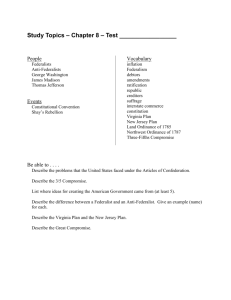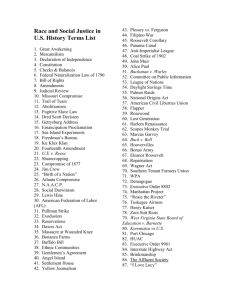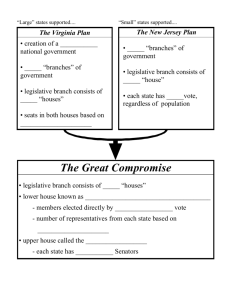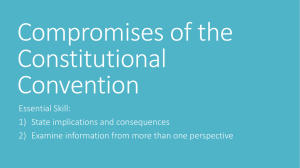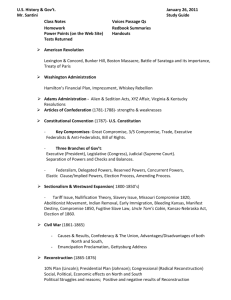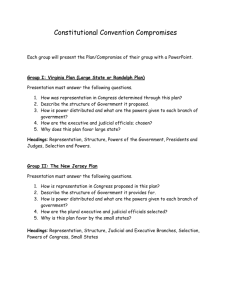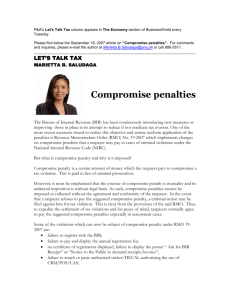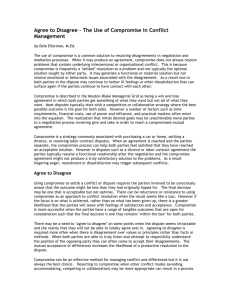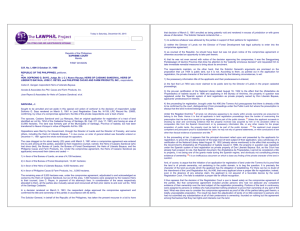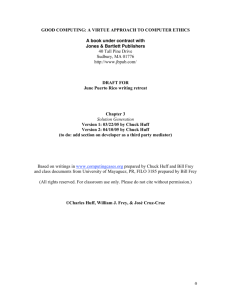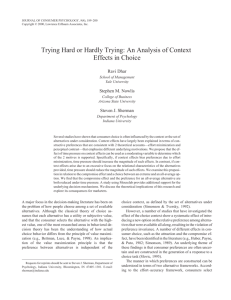Reference Requests
advertisement
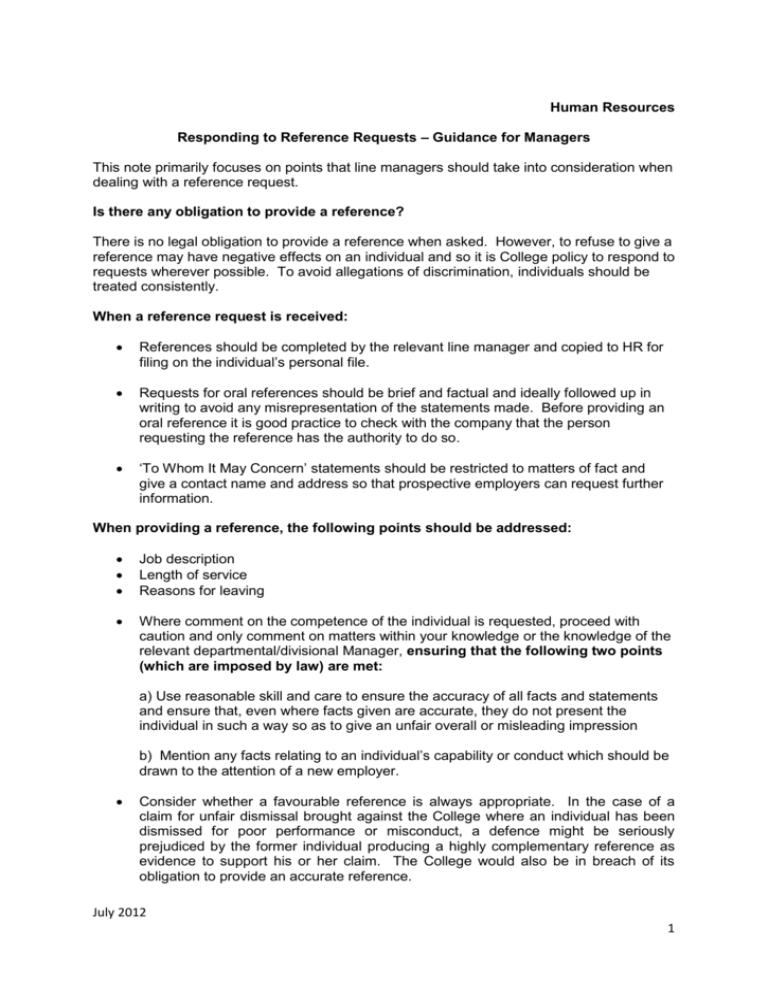
Human Resources Responding to Reference Requests – Guidance for Managers This note primarily focuses on points that line managers should take into consideration when dealing with a reference request. Is there any obligation to provide a reference? There is no legal obligation to provide a reference when asked. However, to refuse to give a reference may have negative effects on an individual and so it is College policy to respond to requests wherever possible. To avoid allegations of discrimination, individuals should be treated consistently. When a reference request is received: References should be completed by the relevant line manager and copied to HR for filing on the individual’s personal file. Requests for oral references should be brief and factual and ideally followed up in writing to avoid any misrepresentation of the statements made. Before providing an oral reference it is good practice to check with the company that the person requesting the reference has the authority to do so. ‘To Whom It May Concern’ statements should be restricted to matters of fact and give a contact name and address so that prospective employers can request further information. When providing a reference, the following points should be addressed: Job description Length of service Reasons for leaving Where comment on the competence of the individual is requested, proceed with caution and only comment on matters within your knowledge or the knowledge of the relevant departmental/divisional Manager, ensuring that the following two points (which are imposed by law) are met: a) Use reasonable skill and care to ensure the accuracy of all facts and statements and ensure that, even where facts given are accurate, they do not present the individual in such a way so as to give an unfair overall or misleading impression b) Mention any facts relating to an individual’s capability or conduct which should be drawn to the attention of a new employer. Consider whether a favourable reference is always appropriate. In the case of a claim for unfair dismissal brought against the College where an individual has been dismissed for poor performance or misconduct, a defence might be seriously prejudiced by the former individual producing a highly complementary reference as evidence to support his or her claim. The College would also be in breach of its obligation to provide an accurate reference. July 2012 1 The following disclaimer should be included in all references, both written and oral: “This reference is strictly confidential and is provided to you only in connection with <Name> and should only be used for that purpose. The above information is given in confidence and in good faith. No responsibility, however, can be accepted for any errors, omissions or inaccuracies in the information or for any loss or damage that may result from reliance being placed upon it.” (This may provide the College with a defence for a claim for negligent misstatement and may assist the College if it wishes to resist providing a copy of the reference to the individual). If the request asks whether the individual has entered into a compromise agreement with the College, the response should be: “It is College policy not to respond to questions regarding compromise agreements. This should not be taken as an indication that <Name> has or has not entered into a compromise agreement with the College.” Ensure that the reference: Is not discriminatory or in any way victimises the individual, for example, by refusing to provide (or by providing a bad) reference because an individual has previously raised a complaint of discrimination. Does not comment on any aspect of sickness or attendance When refusing to provide a reference, ensure: The refusal is carefully phrased to ensure that a negative reference is not implied where this is not the intention. Employee/Ex-employee’s rights under the Data Protection Act The Data Protection Act (DPA) gives individuals the right to have access to data stored by the College about them. The DPA provides that generally individuals do not have access rights to references given in confidence by the College but they may have access to references received by the College (and therefore any potential employer to which a reference is sent). It may be possible to refuse to disclose such a reference from the College’s files where to do so would necessarily reveal personal data of a third party (eg the author of the reference). For further information please refer to the Legal Services Office guidance: http://www3.imperial.ac.uk/legalservicesoffice/dataprotection/guidance/guide7 In addition, the Information Commissioner has issued a good practice note which deals with access to employment references and this may be viewed at: http://www.ico.gov.uk/upload/documents/library/data_protection/detailed_specialist_g uides/employment_practices_code.pdf Who to contact for information and assistance: For factual information on the employment history of an individual or for general guidance on the content of references please contact your local HR team: http://www3.imperial.ac.uk/hr/contactus HR teams: If the subject of the reference request left College’s employment prior to the introduction of ICIS, please contact the HR Systems Trainer, who will be able to check whether a record exists on the previous HR system – PATRIC. July 2012 2 Template letter for responding to references <Date> Your Ref: < > CONFIDENTIAL <Name> <Address> Dear <Name> Re: Reference Request for <Name> I am writing in reply to your letter of <date> in which you request a reference for <Name>. <Insert details relating to job description, length of service and reasons for leaving, etc> [Delete if the request does not ask whether the individual entered into a compromise agreement] It is College policy not to respond to questions regarding compromise agreements. This should not be taken as an indication that <Name> has or has not entered into a compromise agreement with the College. This reference is strictly confidential and is provided to you only in connection with <Name> and should only be used for that purpose. The above information is given in confidence and in good faith. No responsibility, however, can be accepted for any errors, omissions or inaccuracies in the information or for any loss or damage that may result from reliance being placed upon it. Yours sincerely <Name> <Job Title> cc HR for staff file July 2012 3
